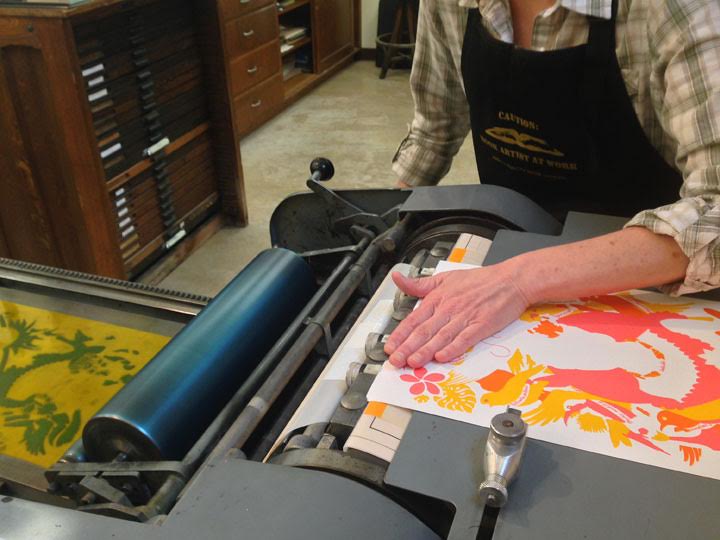Page 51 • (562 results in 0.059 seconds)
-

throughout their histories.” Since Spring and O’Leary started the original Dead Feminists series they’ve been entrenched in the feminist community, in which they’ve found an active and passionate audience that has helped give the series a life of its own. “When we began the series, we hoped to make a contribution for the record–to actively engage with politics, rather than simply consuming the news or discussing current events,” Spring says. “By creating our broadsides (prints) and donating a portion of
-
serious attention to Indigenous philosophies or intellectualism. Philosophy Undergraduate study in philosophy is fundamental in pursuing the most important questions regarding one's understanding of themselves, others and the world in which they live. Political Science The student of politics seeks to understand how governments are organized and structured, how political processes are employed, and the relationship of structures and processes to societal purposes. Pre-Law Pacific Lutheran University’s
-
**New Curriculum Beginning Summer 2024** Year 1 SummerGNUR 701 Foundations of Scholarly Writing & Communication (2) GNUR 702 Advanced Practice Roles & Collaboration (1)2 Credits 1 Credit FallGNUR 703 Theoretical Foundations & Evidence-based Practice (3) GNUR 710 Advanced Patho (3) GNUR 711 Advanced Pharm (3) GNUR 712 Advanced Pharm Discussion (1)3 Credits 3 Credits 3 Credits 1 Credit J-Term GNUR 704 Pop Health, Policy, & Politics (2) Study Away option (Mexico/DC/Oly/Tacoma) 2 Credits SpringGNUR
-
**New Curriculum Beginning Summer 2024** Year 1 SummerGNUR 701 Foundations of Scholarly Writing & Communication (2) GNUR 702 Advanced Practice Roles & Collaboration (1)2 Credits 1 Credit FallGNUR 703 Theoretical Foundations & Evidence-based Practice (3) GNUR 710 Advanced Patho (3) GNUR 711 Advanced Pharm (3) GNUR 712 Advanced Pharm Discussion (1)3 Credits 3 Credits 3 Credits 1 Credit J-TermGNUR 704 Pop Health, Policy, & Politics (2) Study Away option (Mexico/DC/Oly/Tacoma)2 Credits SpringGNUR
-

to bring in people who were never involved so they can learn,’” Franklin said. “And because of that I won overwhelmingly.” That win launched Franklin into a 20-year stint in state politics. Her extensive background in health care, both public and private, and her time in the political sphere gave Franklin experience that was hard to beat. “If you have the experience and you have been there, then I think you can craft better laws” she said. “I’m no Harriet Tubman. Let’s get on with it and bring
-
going to do this I am going to bring in people who were never involved so they can learn,’” Franklin said. “And because of that I won overwhelmingly.” That win launched Franklin into a 20-year stint in state politics. Her extensive background in health care, both public and private, and her time in the political sphere gave Franklin experience that was hard to beat. “If you have the experience and you have been there, then I think you can craft better laws” she said. “I’m no Harriet Tubman. Let’s
-
ScheduleDeno SederPresentation Title: “Miracle at Zakynthos” Who: Deno Seder, Author, Producer, Director Bio: Deno Seder is the author of four books and has written, produced and directed films and videos in the areas of art, politics, public service, and historical events. His current project is a 20-minute filmed stage play about the Holocaust which will be distributed to middle and high schools across America and will include a curriculum guide for teachers prepared by the United States Holocaust
-
. in Modern Languages and Literatures from the Universidad Nacional Autónoma de México (UNAM), a PhD in English and Comparative Literature from Columbia University, and a Diplome in Translation Studies from El Colegio de México. Her main area of research focuses on how interspecies relationships model self-stranger relationships in eighteenth-century British literature, and she also investigates human and non-human relationships in Latin American literature. Her forthcoming article on Mary
-
with CHEM 333 recommended. (4) BIOL 352 : Comparative Anatomy An evolutionary approach to the study of structural and functional relationships in the vertebrate body. Includes examination and dissection of major organs and organ systems using preserved animal organs and cadavers (including humans). The course emphasizes the analysis of similarities and differences across groups to assess the significance of adaptations and explore the historical and present diversity of vertebrate morphology
-
investigation centers around museums as rhetorical spaces that contribute to the construction of collective memory, emphasizing narratives of survival, resilience, and identity for Holocaust survivors living in Uruguay and Argentina. Venice JakowchukA Comparative Stylistic Analysis of Calixtlahuaca Projectile Points Faculty Mentor: Bradford Andrews, Anthropology This project analyzes projectile points found in Calixtlahuaca, central Mexico (1130 – 1530 AD). Through visual and comparative analysis the
Do you have any feedback for us? If so, feel free to use our Feedback Form.


